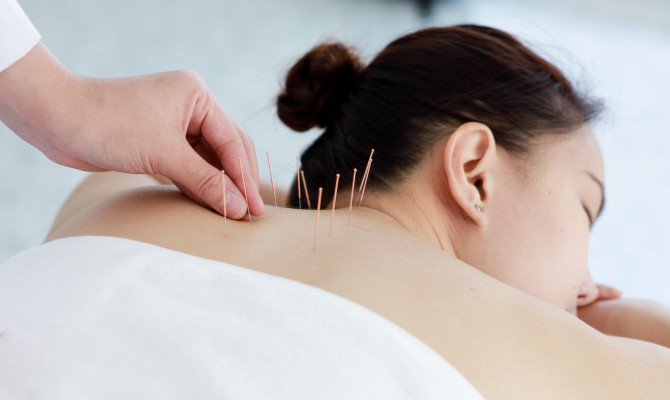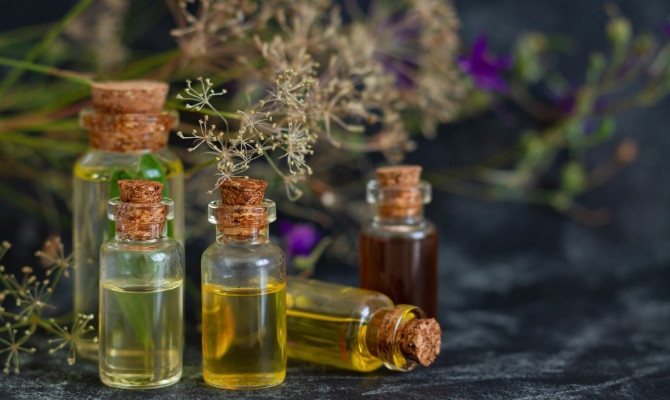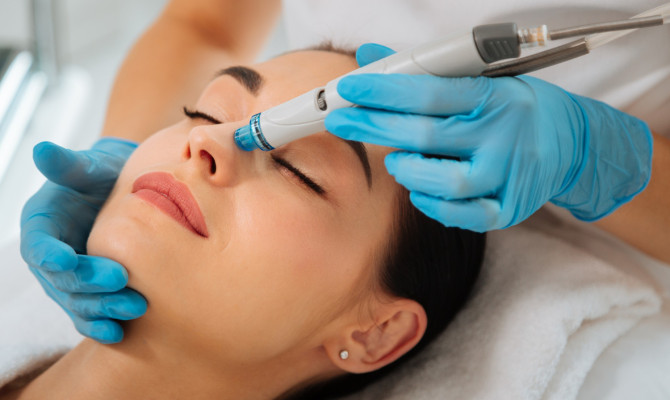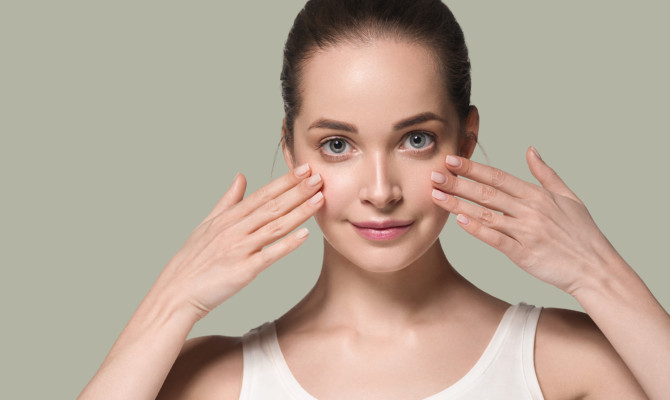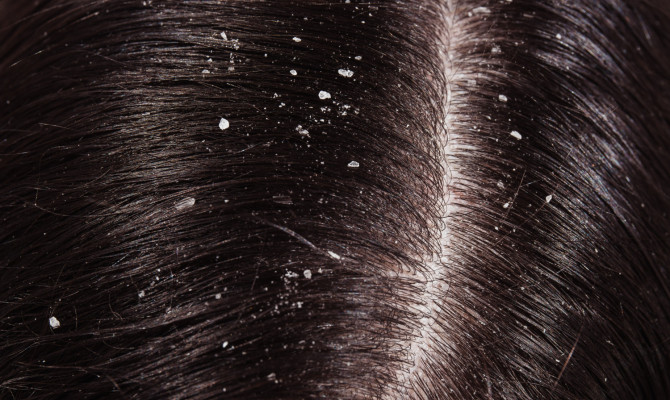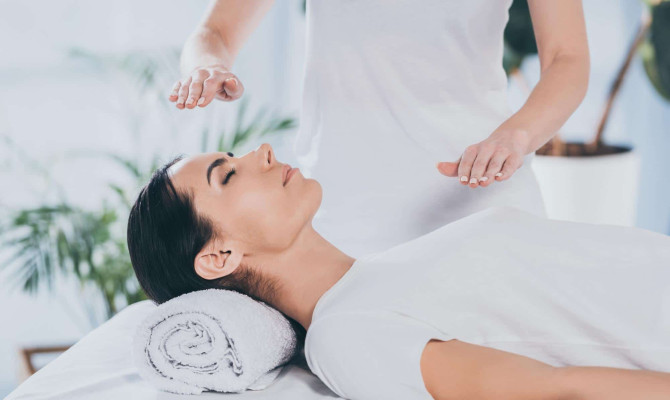Dandruff: Types, Symptoms, and Treatment

- Dandruff
- 17 Aug 2023
Overview
What is Dandruff?
Dandruff is a skin disease that causes itchy and flaky skin. The visible white flakes of dead skin are usually seen between the hairs and on the shoulders. It is a common condition that is generally not serious and non-contagious. It is worse during the winter months.
Dandruff is quite embarrassing, and it lowers the self-esteem of a person. There are various ways to treat the dandruff problem effectively.
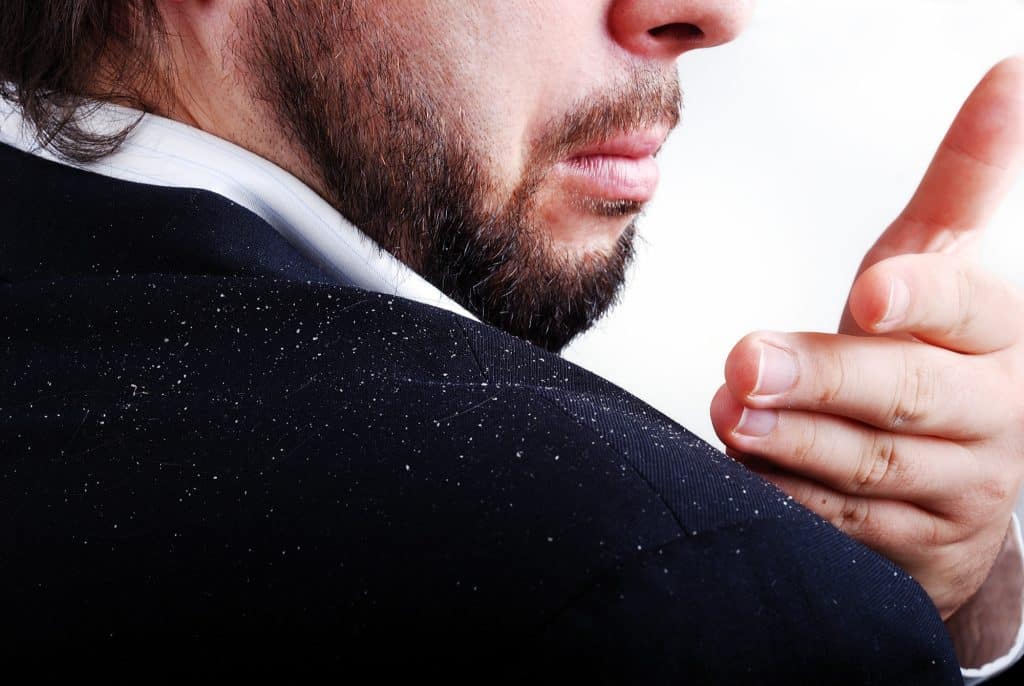
Key Facts of dandruff
- Dandruff is a common problem affecting people worldwide
- Dandruff affects half of the adult population, and men are more affected than women
- Dandruff usually starts at the age of 10 and might affect 40% of people by the age of 30
- The dandruff condition affects around 42% of infants and 3% of adults worldwide
- Dandruff is less frequent after the age of 50 1Overview| Researched based study from Sciencedirect.com ,2Overview| Researched based study from Nlm.nih.gov
Types
Types of Dandruff
Dandruff can be of following types:
- Oily dandruff
- Dry dandruff
- Dandruff related to some disease
- Fungal infection
Oily skin dandruff
- It occurs when the sebaceous glands below the skin produce excess sebum (oily substance). The extra oil irritates the scalp and causes dandruff.
- The oily skin dandruff appears oilier, larger, and yellow rather than white. Seborrheic dermatitis is a harsh type of oil skin dandruff.
Dry skin dandruff
- Dry skin dandruff is a common type of dandruff that usually occurs during the winter season.
- The internal use of heaters to warm the house causes the skin to dry out, including the scalp skin. The scalp is mildly itchy and sheds off dandruff flakes that are small and white.
Fungus-related dandruff
- Malasezzia fungus, generally present on the skin of every human, causes fungus-related dandruff.
- The fungus in some people triggers an inflammatory response causing dandruff.
Disease-related dandruff
Specific skin problems such as eczema, psoriasis, and Seborrheic dermatitis can influence the scalp and lead to dandruff.
Eczema
- Eczema is the inflammatory condition of the scalp that produces larger dry skin dandruff.
Psoriasis
- Psoriasis is a skin disease in which there is rapid growth of cells and produces thick, scaly dandruff.
Seborrheic dermatitis
- It occurs in people with oily skin and produces red scaly patches on the scalp and itching 3Types| Researched based study from Nlm.nih.gov
Symptoms
Symptoms of Dandruff
The symptoms of dandruff are as follows:
- Itchy scalp
- Scaly scalp
- White oily fakes on the hair and shoulder
- Scaly crusty scalp in infants (cradle cap)
- Dry flakes on the face
- Red patches on the scalp’s skin (erythema)
- Visible dry flakes on the eyebrow
- Hair loss 4Symptoms| Researched based study from Nlm.nih.gov
Causes
Causes of Dandruff
There can be numerous causes for dandruff. Some of them are mentioned below:
- Dry skin
- Irritated oily skin due to excess secretions from the sebaceous glands
- Fungus on the skin surface
- Sensitivity to hair care products
- Lack of shampooing or over-shampooing
- Over-drying of the scalp
- Over-brushing the hair that causes friction on the scalp
- Malassezia fungus on the scalp
- Over-exposure to sunlight
- Exposure to dust and dirt
- Pressure on the scalp from hats
- Certain skin diseases, viz; eczema and psoriasis 5Causes| Researched based study from Nlm.nih.gov
Diagnosis
Diagnosis of Dandruff
- People can self-diagnose dandruff from the symptoms of itchy, dry flakes on the hair and shoulder.
- A dermatologist diagnoses dandruff by visual observation of the scalp. To rule out other possible causes, the dermatologist might recommend for skin biopsy if the dandruff does not respond to treatment 6Diagnosis| Researched based study from Nlm.nih.gov
Risk
Who are at risk of getting Dandruff?
- One with oily hair
- Who are having Parkinson’s disease
- With Human immunodeficiency virus(HIV) infection
- People with hepatitis (liver inflammation)
- One with epilepsy (seizure disorder)
- People with traumatic brain injury 7Risk| Researched based study from Nlm.nih.gov
Complications
Complications of Dandruff
Complications are rare with dandruff. However, occasionally dandruff might indicate severe disease.
People should seek medical attention under the following circumstances:
- Very itchy scalp
- Severe dandruff and home treatment do not respond.
- Swelling, redness, and tenderness
- Symptoms of skin conditions viz; psoriasis, eczema, and Tinea capitis(scalp ringworm)
Sometimes, complications also result from treatment. If the scalp treatment shampoo is itchy, one must consult the doctor and use another product 8Complications| Researched based study from Nlm.nih.gov
Treatment
Treatment of Dandruff
It is good to talk to a dermatologist to know the underlying cause of itchy and severe dandruff and get the specific treatment or a prescribed medicated shampoo.
Anti-dandruff shampoo
- Various over-the-counter anti-dandruff shampoos are available for mild dandruff to manage the symptoms well.
- Before using the anti-dandruff shampoo, remove the loose dry flakes from the scalp as much as possible with a hairbrush to get the most effect.
- One must not remove the flakes too harshly as it might irritate the scalp and worsen the condition.
- Since many anti-dandruff shampoos exist, one must follow the product label’s instructions to get the most out of them. One must also ensure that the shampoo is kept on the scalp for some time before washing or immediately washing away.
The majority of anti-dandruff or antifungal shampoos contain one or more of the following ingredients:
- Ketoconazole (antifungal drug)
- Zinc pyrithione (antifungal, antibacterial, and antimicrobial properties)
- Selenium sulfide (antifungal drug)
- Salicylic acid(keratolytic medication that sheds dead skin cells)
- Coal tar (natural antifungal that decreases skin cell production)
- Tea tree oil (antibacterial and antifungal properties)
Some other medicines to treat dandruff are:
- Topical antifungal medication (treats fungal infection)
- Immunomodulators (a drug that helps the immune system)
- Corticosteroids (anti-inflammatory drugs) 9Treatment| Researched based study from Researchgate.net
Home remedies
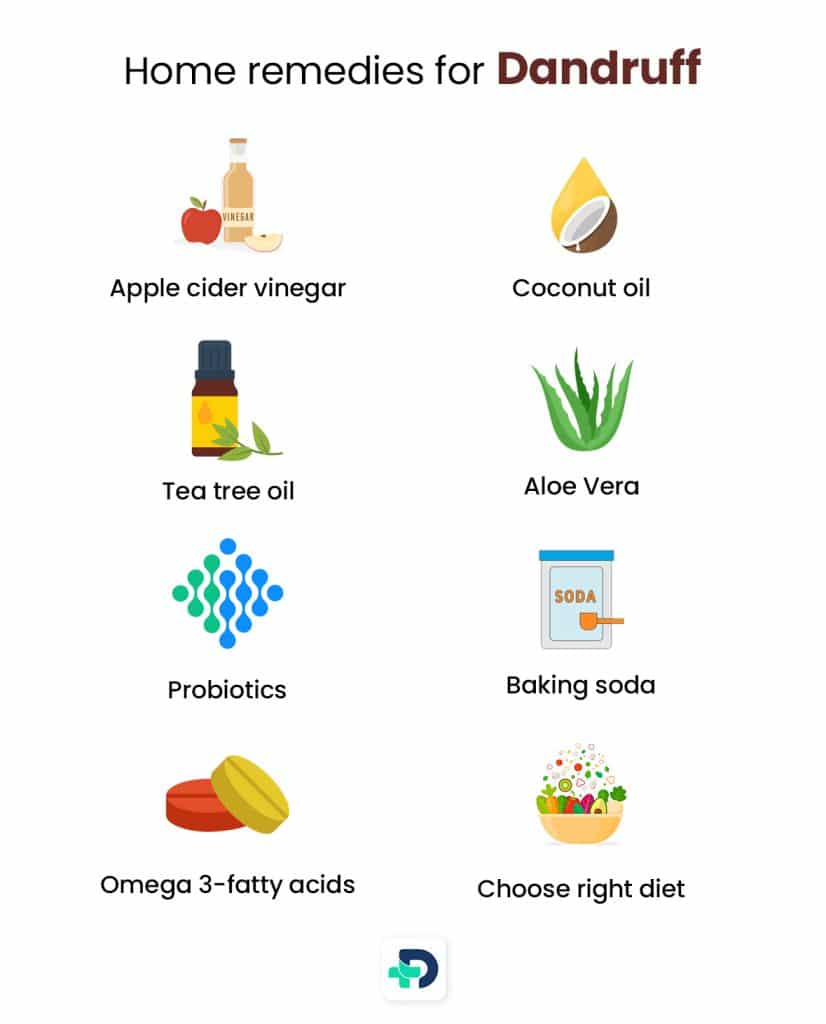
Home remedies for Dandruff
Apple cider vinegar
- One can apply diluted apple cider vinegar (1:1) on the scalp, leave it for 30 minutes to one hour and then rinse it out.12Home remedies| Researched based study from Nlm.nih.gov
- It removes dead skin cells, and it balances the pH of the scalp
However, research is needed to prove the fact.
Coconut oil
- One can apply 4 to 5 teaspoons of coconut oil on the scalp area, leave it for around one hour and then shampoo and wash it out.
- It improves skin hydration and prevents dryness
- It controls the eczema symptoms and dandruff 11Home remedies| Researched based study from Nlm.nih.gov
Tea tree oil
- One can apply the diluted tea tree with coconut oil on the scalp.
- Tea tree oil has antimicrobial properties
- It reduces the severity of the symptoms 10Home remedies| Researched based study from Nlm.nih.gov
However, more research is warranted to prove the effect of tea tree oil on dandruff.
Aloe Vera
- One can rub aloe vera on the scalp before washing the hair
- Aloe vera has antifungal and antibacterial properties and might protect against dandruff
- It can decrease inflammation and reduce the dandruff symptoms 13Home remedies| Researched based study from Nlm.nih.gov
Omega 3-fatty acids
- Consuming omega 3-fatty acids might reduce the dandruff symptoms
- It reduces inflammation and irritation
- It maintains oil production and hydrates the skin
Some sources of omega 3-fatty acids are as follows:
- Salmon
- Mackerel
- Trout
- Walnuts
- Flaxseeds
- Chia seeds 14Home remedies| Researched based study from Nlm.nih.gov
Baking soda
- One can rub baking soda on the scalp and rinse after a few minutes
- It has antifungal properties and reduces skin irritation
- It removes dead skin and reduces itching 15Home remedies| Researched based study from Nlm.nih.gov
However, more research is warranted to prove the effect of baking soda on dandruff.
Probiotics
- Probiotics are beneficial bacteria that boost the immune system and prevent dandruff severity.
- Probiotics are available in supplement form in health stores
- Probiotics also occur in fermented foods such as sauerkraut, kimchi, and natto 16Home remedies| Researched based study from Nlm.nih.gov
Choose right diet
Dietary modification might prevent fungal infection and may help treat dandruff. However, more research is wanted to prove the effect of diet on dandruff prevention.
Some of the foods to limit are as follows:
- Red meat
- White pasta
- White bread
- Processed food
- Sugary foods and beverages
- Fried foods
- Gluten-containing foods
- Eggplants
- Tomatoes
- Peppers 17Home remedies| Researched based study from Nlm.nih.gov
Prevention
Prevention of Dandruff
Things to do to avoid dandruff are as follows:
- Reduce stress by taking a relaxing walk or practicing yoga daily
- For oily scalp, daily shampoo the hair with a gentle cleanser and light massage the scalp
- Limit wearing of synthetic material hats and scarves that cause friction on the scalp
- Brush the dry hair to release the hair locks at least twice daily
- Breathe fresh air outdoors to reduce the oil build-up on the scalp
- Use the right shampoo that suits the scalp to keep the oils at bay
- Touch the scalp only when it is itchy to avoid dirt mixing with dandruff that makes it worse 18Prevention| Researched based study from Nlm.nih.gov
Signs needing emergency medical attention
The symptoms needing immediate medical attention are as follows-
- Red patches on the scalp and hairline
- Bleeding when flakes come off the scalp
- Pain and pus on the scalp
Takeaway
Key Takeaways
- Dandruff is an annoying skin condition that produces skin flakes
- One can efficiently treat dandruff with OTC shampoos as well as home remedies
- Dandruff that does not improve with treatments must be consulted with a dermatologist immediately to avoid unwanted complications
Any feedback on this article?
 This Articles content was accurate
This Articles content was accurate Very Informative Article
Very Informative Article I have a question or a comment
I have a question or a comment
 This article contains inaccurate content
This article contains inaccurate content This article was not helpful
This article was not helpful I have a question or a comment
I have a question or a comment
We appreciate your helpful feedback!
Checkout our social pages
References
-
Science Direct
Dandruff | Overview
-
National Library of Medicine
Seborrheic Dermatitis and Dandruff: A Comprehensive Review | Overview
-
National Library of Medicine
Seborrheic Dermatitis | Types
-
National Library of Medicine
Is Dandruff a Disease? | Symptoms
-
National Library of Medicine
Seborrheic Dermatitis and Dandruff: A Comprehensive Review | Causes
-
National Library of Medicine
An Overview of the Diagnosis and Management of Seborrheic Dermatitis | Diagnosis
-
National Library of Medicine
DANDRUFF: THE MOST COMMERCIALLY EXPLOITED SKIN DISEASE | Risk
-
National Library of Medicine
Adult Seborrheic Dermatitis | Complications
-
Research Gate
AN OVERVIEW OF DANDRUFF AND NOVEL FORMULATIONS AS A TREATMENT STRATEGY | Treatment
-
National Library of Medicine
Treatment of dandruff with 5% tea tree oil shampoo'. J Am Acad Dermatol | Home remedies
-
National Library of Medicine
The effect of topical virgin coconut oil on SCORAD index, transepidermal water loss, and skin capacitance in mild to moderate pediatric atopic dermatitis: a randomized, double-blind, clinical trial | Home remedies
-
National Library of Medicine
Antifungal Activity of Apple Cider Vinegar on Candida Species Involved in Denture Stomatitis | Home remedies
-
National Library of Medicine
The Review on Properties of Aloe Vera in Healing of Cutaneous Wounds | Home remedies
-
National Library of Medicine
Omega-3 fatty acids and inflammatory processes: from molecules to man | Home remedies
-
National Library of Medicine
Old fashioned sodium bicarbonate baths for the treatment of psoriasis in the era of futuristic biologics: an old ally to be rescued | Home remedies
-
National Library of Medicine
The positive benefit of Lactobacillus paracasei NCC2461 ST11 in healthy volunteers with moderate to severe dandruff | Home remedies
-
National Library of Medicine
Design of an anti-inflammatory diet (ITIS diet) for patients with rheumatoid arthritis | Remedies
-
National Library of Medicine
Modern management of dandruff | Prevention












